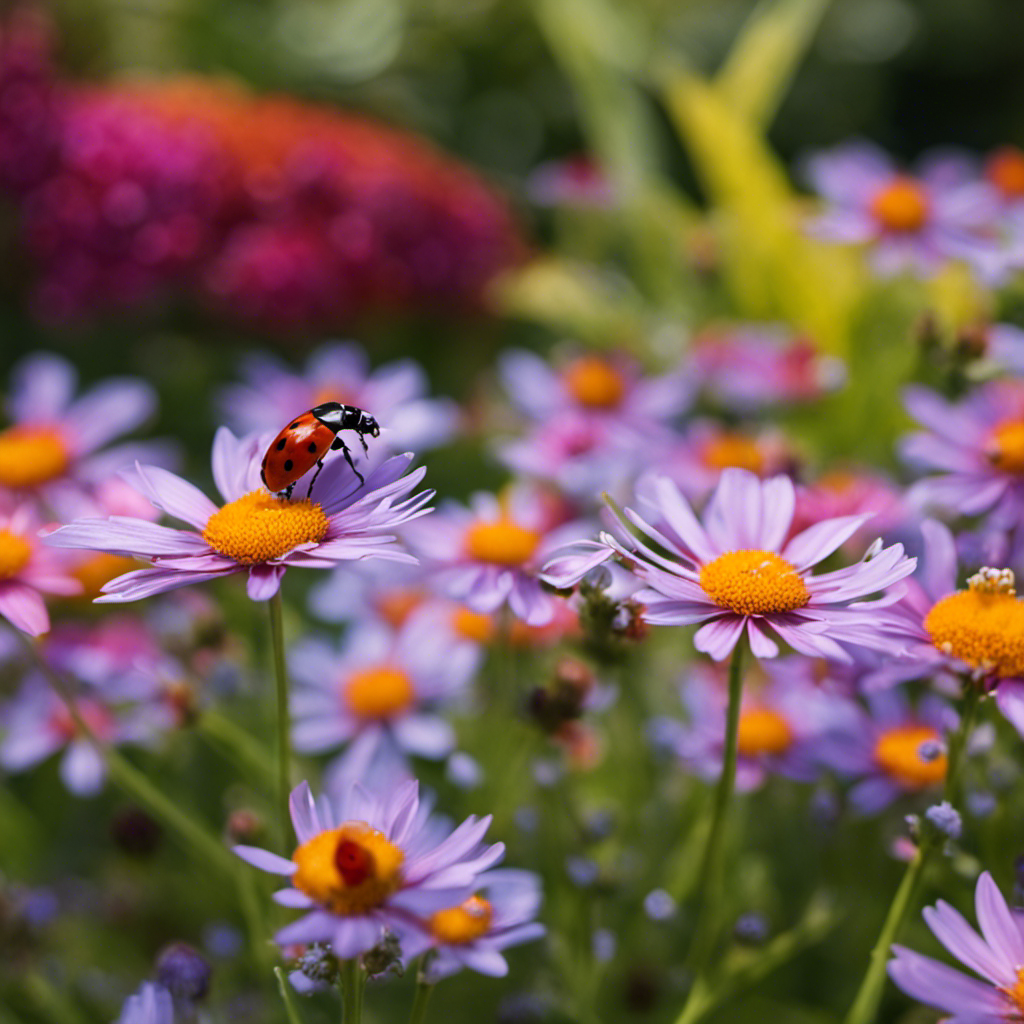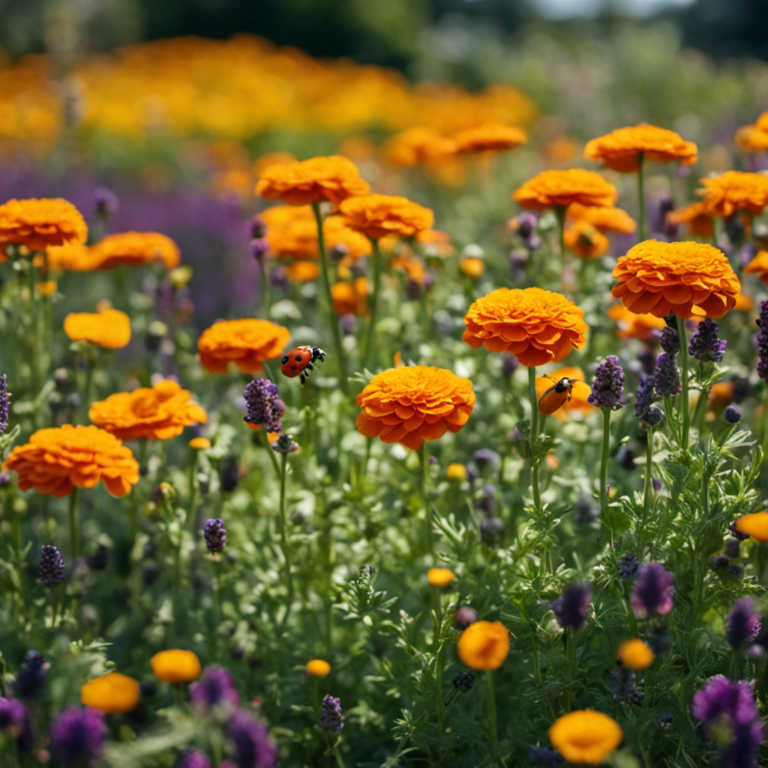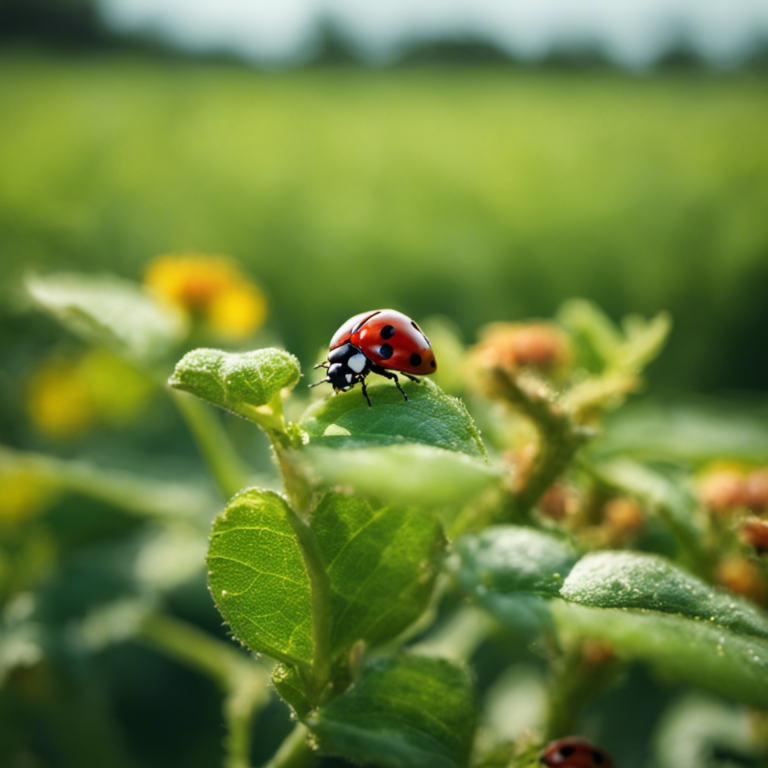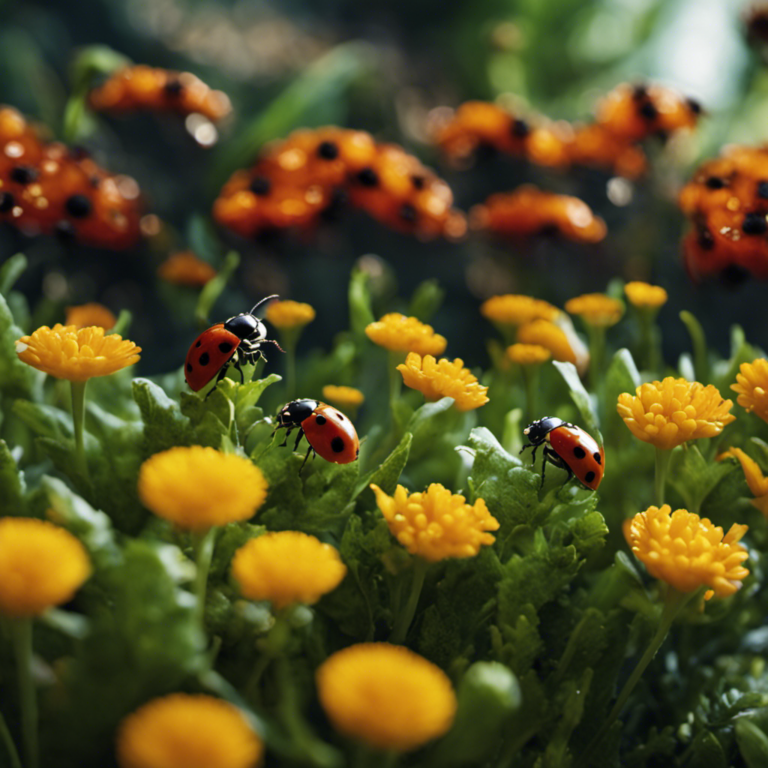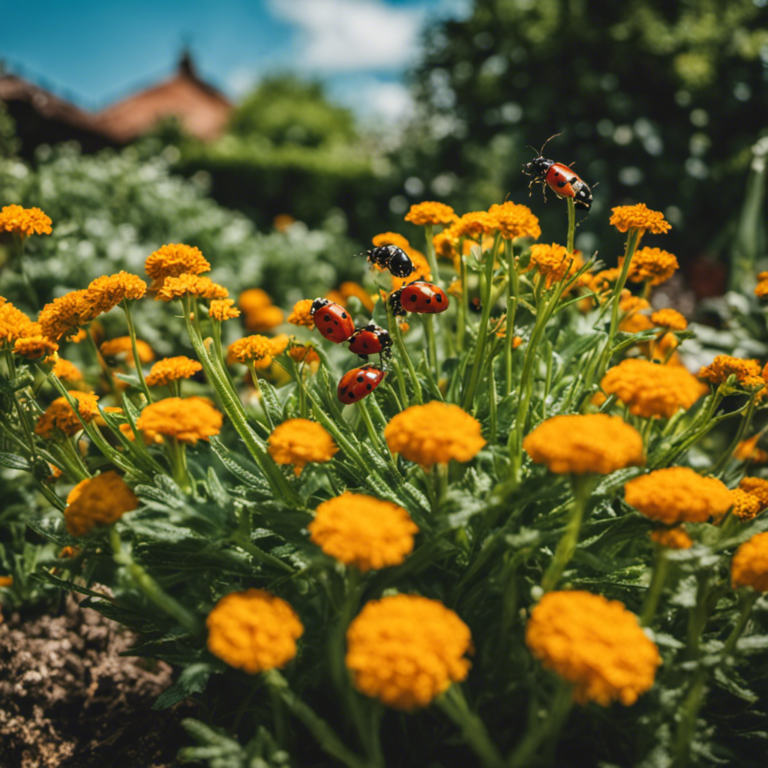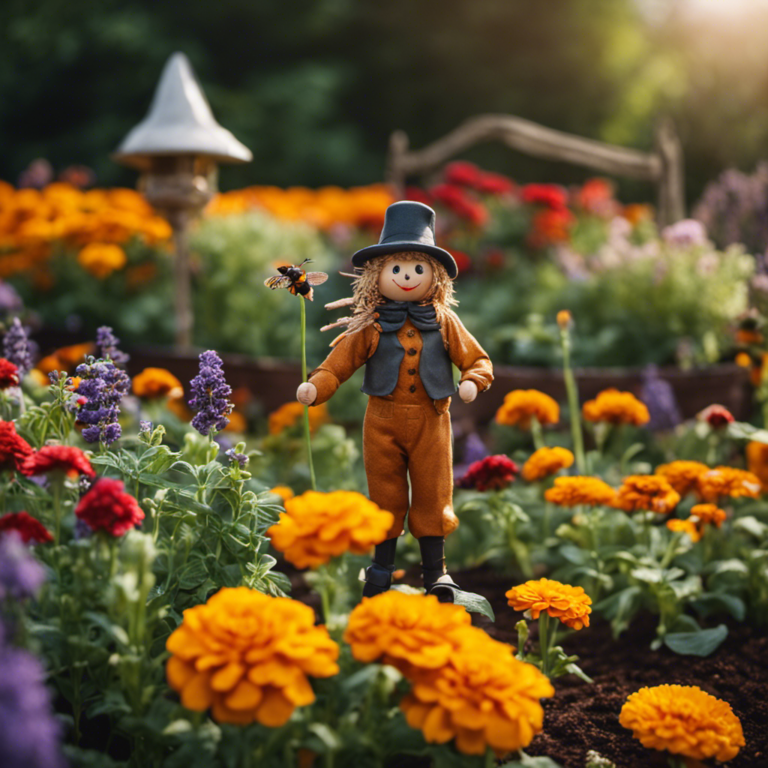Are pests causing problems in your garden?
Are you tired of relying on harmful chemicals?
Well, worry no more! In this article, we have all the tips and tricks you need to achieve victory in your garden through natural pest control.
From companion planting to homemade remedies, we have you covered.
Bid farewell to harmful chemicals and welcome a thriving, pest-free garden.
It’s time to take charge and let nature work its magic!
Key Takeaways
When it comes to protecting your garden from pests, using natural pest control methods is the best approach. Instead of relying on harmful chemicals, gardeners can employ techniques such as companion planting, biological controls, physical barriers, homemade remedies, and crop rotation to effectively safeguard their plants.
By utilizing these practical and knowledgeable methods, gardeners can create a balanced ecosystem that promotes the thriving of beneficial insects and plants. This approach leads to a garden victory, where the space becomes a flourishing and vibrant haven for plants and wildlife.
Companion Planting
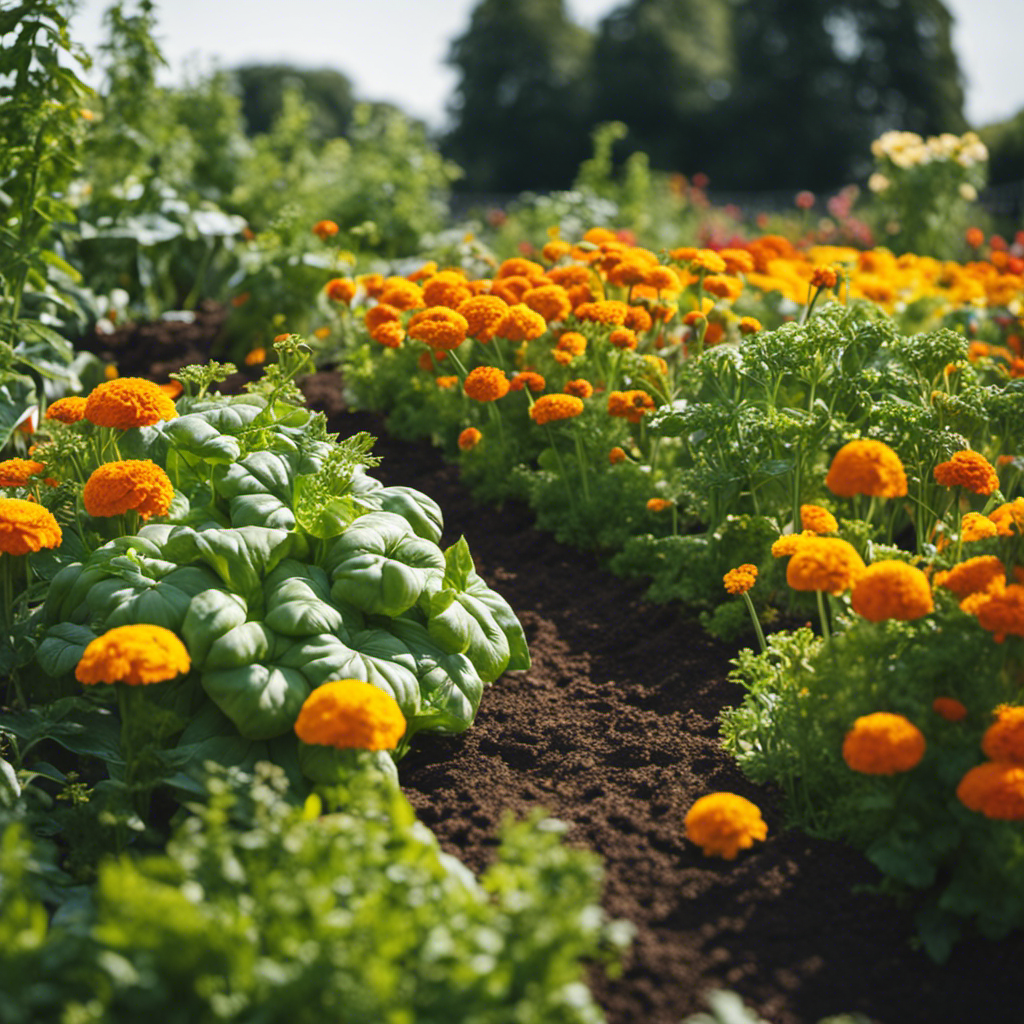
Maximizing the effectiveness of pest control in your garden can be achieved by planting companion plants that naturally repel harmful insects. Interplanting strategies are a valuable tool in your gardening arsenal. By strategically placing certain plants together, you can create a natural barrier against unwanted pests.
For instance, marigolds planted alongside your vegetables can help repel aphids and nematodes. The strong scent of basil can deter mosquitoes and flies, making it an ideal companion for outdoor seating areas. Flowers like yarrow and dill can attract beneficial insects such as ladybugs and lacewings, which feed on harmful pests, maintaining a balanced garden.
Biological Controls
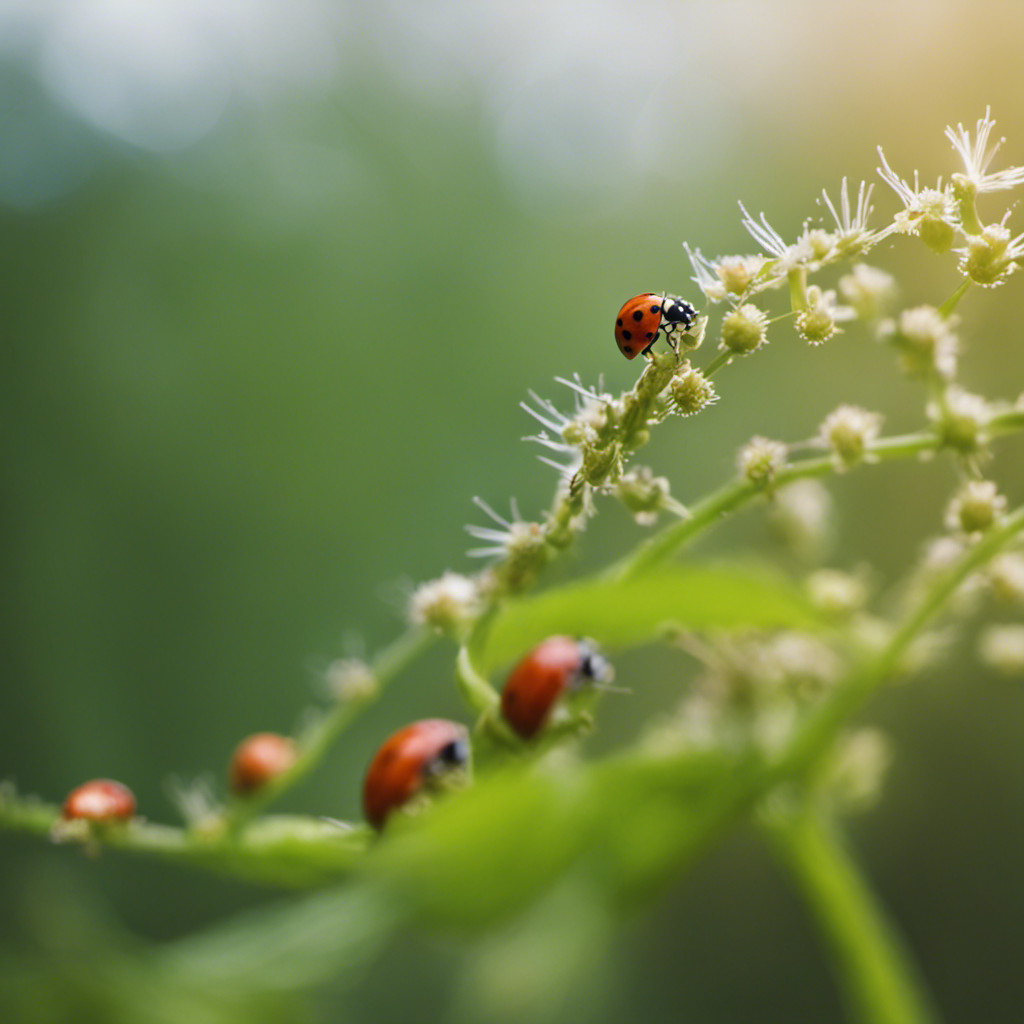
Implementing biological controls is a sustainable and effective method for managing garden pests. Instead of relying on harmful chemicals, you can use nature’s power to maintain a healthy and pest-free garden. Here are some reasons why biological controls are worth considering:
-
Beneficial insects: Introducing beneficial insects like ladybugs, lacewings, and parasitic wasps can help control pest populations. These insects prey on common garden pests, such as aphids and caterpillars, reducing the need for chemical pesticides.
-
Organic pesticides: Using organic pesticides derived from natural sources, such as neem oil or insecticidal soap, can effectively target specific pests without harming beneficial insects or contaminating the environment. These organic alternatives are safe for humans, pets, and the ecosystem.
Physical Barriers
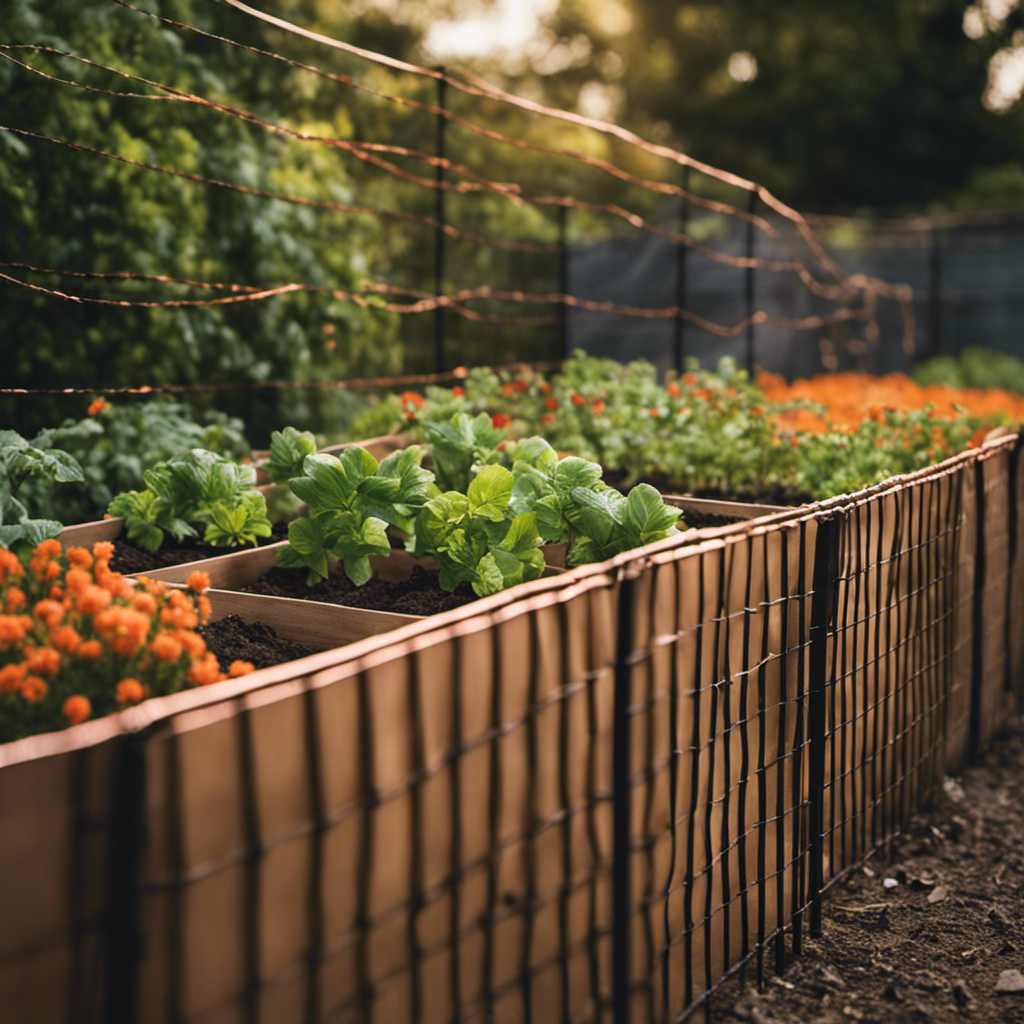
To further protect your garden from pests, consider using physical barriers in addition to the biological controls we discussed earlier. These barriers serve as a deterrent, preventing pests from reaching your plants. One effective method is vertical gardening, where you grow plants upwards on trellises or fences. This not only saves space but also makes it more difficult for pests to access your plants. Another option is to incorporate insect-repelling plants into your garden. These plants release scents that repel pests, keeping them away from your plants. For example, marigolds, basil, and lavender are known for their ability to repel insects. To highlight the benefits of physical barriers, here’s a table summarizing some key points:
| Physical Barriers | Benefits | Examples of Plants |
|---|---|---|
| Vertical Gardening | Saves space | Tomatoes, cucumbers |
| Insect-Repelling Plants | Repels pests | Marigolds, basil, lavender |
Homemade Remedies
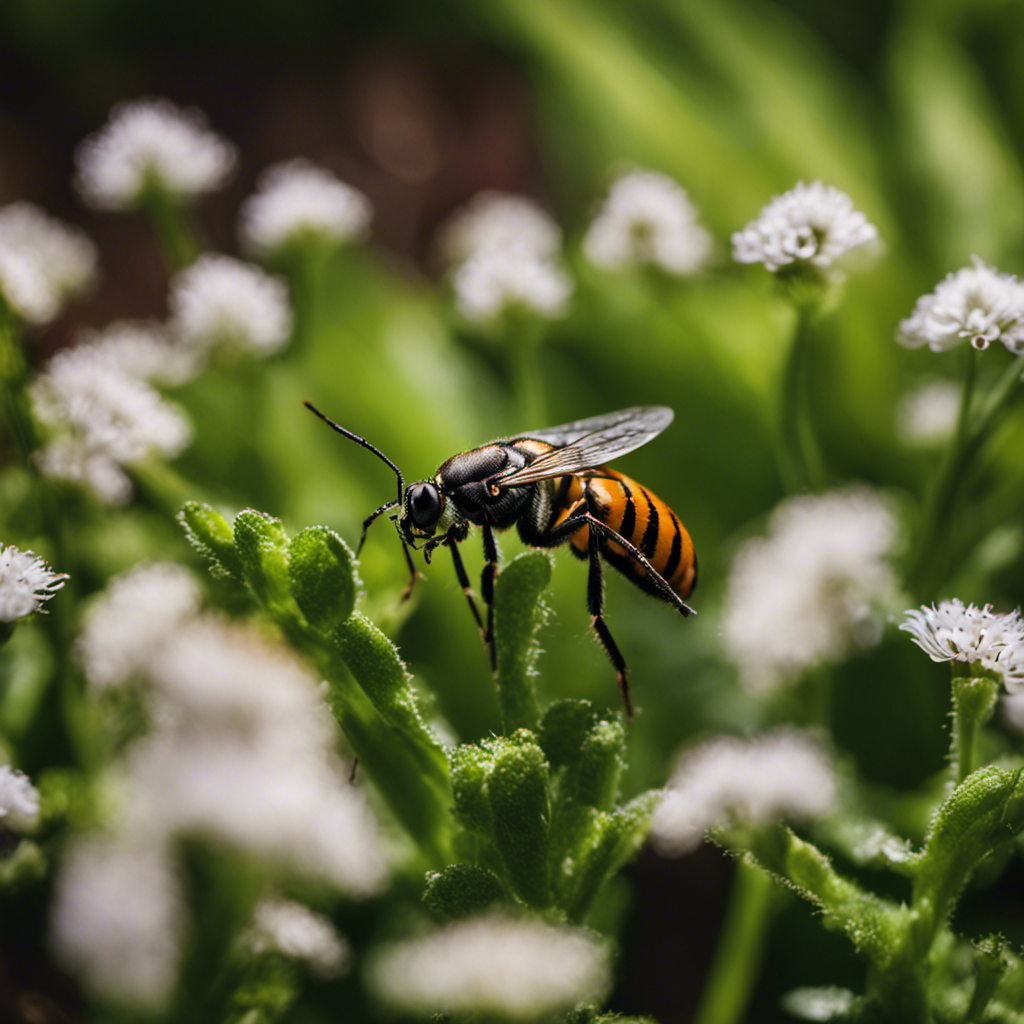
Try out some homemade remedies to naturally control pests in your garden. There are several organic alternatives and natural repellents that you can easily make at home. These remedies not only help keep pests away but also promote a healthier and more sustainable garden.
Here are two effective homemade remedies to consider:
-
Garlic spray: Crush garlic cloves and mix them with water. Let the mixture sit overnight, then strain it and add a few drops of dish soap. This garlic spray can repel aphids, caterpillars, and other pests.
-
Neem oil spray: Mix neem oil with water and a few drops of liquid soap. Neem oil has insecticidal properties and can help control a wide range of pests, including aphids, whiteflies, and spider mites.
Crop Rotation

In order to effectively manage pests in your garden, it’s a good idea to incorporate crop rotation into your gardening practices. Crop rotation is a simple yet effective technique that involves planting different crops in different areas of your garden each year. This helps disrupt the life cycles of pests and naturally reduces their populations.
Additionally, crop rotation promotes soil health by preventing the buildup of pests and diseases that can affect specific crops. By rotating crops, you can also take advantage of intercropping, which involves planting complementary crops together to maximize space and enhance pest control. For example, planting marigolds alongside tomatoes can help repel pests and improve soil health.
By implementing crop rotation and intercropping techniques, you can maintain a healthy garden and minimize the need for chemical pesticides.
Benefits of Crop Rotation:
- Disrupts pest life cycles
- Reduces pest populations
- Promotes soil health
- Maximizes space
- Enhances pest control
Examples of Intercropping:
- Marigolds and tomatoes
- Basil and peppers
- Beans and corn
- Cucumbers and radishes
- Carrots and onions
Conclusion
When it comes to protecting your garden from pests, natural pest control methods are the way to go. Instead of relying on harmful chemicals, gardeners can use companion planting, biological controls, physical barriers, homemade remedies, and crop rotation to effectively safeguard their plants.
These techniques work in harmony with nature, creating a balanced ecosystem where beneficial insects and plants can thrive. By embracing these practical and knowledgeable methods, you can achieve a garden victory that showcases a flourishing and vibrant space.
